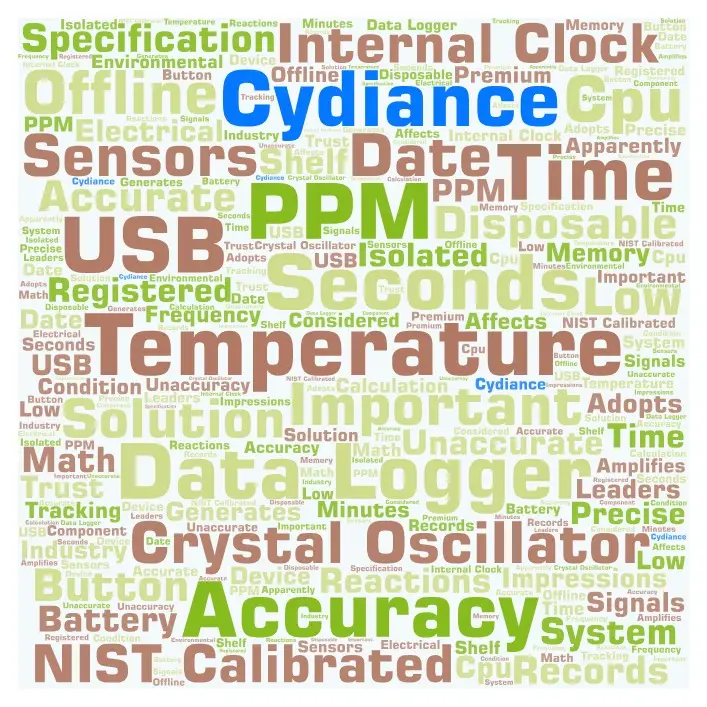Everyone understands temperature accuracy is very important for a temperature data logger. We agree and that’s why we only use NIST calibrated sensors for our products.
However we want to call attention to one specification of the temperature data loggers in this article, that most users forget or may be not awared of. That’s the time accuracy of the loggers, especially for these disposable offline USB data loggers, like our Cydiance C1.
Temperature accuracy is important. However if the times and dates registered with this accurate temperature are unaccurate, these records are then leading you to wrong impressions and reactions.
How does a data logger keep track of time?
A typical USB data logger usually runs with a button size battery. It is an isolated system with own CPU, memory and an internal clock. This internal clock, as we called a crystal oscillator, generates electrical signals at a precise frequency, which then provides the tracking of time.
Accuracy of this crystal oscillator is speced as PPM, lower PPM means higher accuracy and apparently higher cost. The temperature data logger industry leaders typically use 20PPM, while some low cost solution adopts 50PPM. In Cydiance C1, as our premium solution, we are using 5PPM.
What does this time accuracy actually mean?
Let’s make a quick math. 5PPM presents a ±5 seconds unaccuracy every 1,000,000 seconds. That means, every 30days(2,592,000 seconds), the difference will be ±12.96 seconds, and if we put it in 365 days, it will be ±157.68 seconds. that’s about 2.6 minutes.
That basically explains, you can still trust the time accuracy on C1 after the device has been placed on shelf for one year.
We haven’t considered about the environmental temperature condition in this calculation. In some cases temperature affects the crystal oscillator very much, it may amplify the difference by 4-5 times. And that’s why we insist on using a much higher component on our C1 temperature data loggers.




